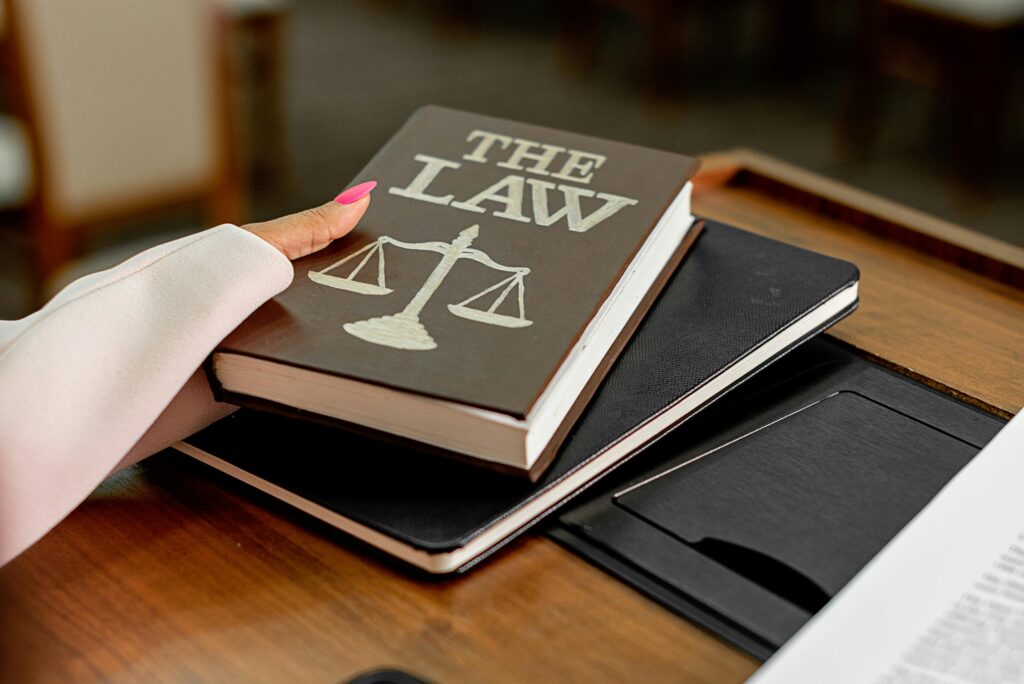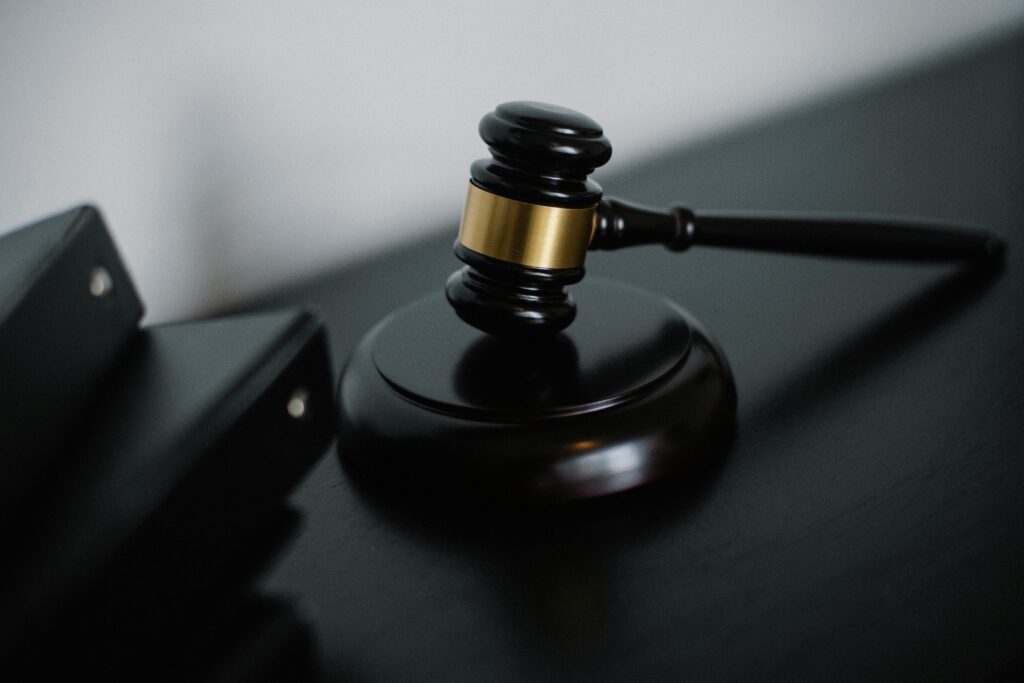Published On: November 3rd 2025
Authored By: Samarth Jalhotra
Meerut College affiliated to Chaudhary Charan Singh University
Abstract
The right to live covers more than just the ability to exist; it also includes the capacity to live in a clean, safe environment and with dignity. Indian courts have interpreted Article 21 of the Constitution to acknowledge that the right to life is inextricably linked to clean water, a healthy environment, and air free from pollution.Moreover, establishing instructing principles of sustainable development, the polluter pays principle, inter generational equity and many more the judicial interpretation has made environmental safeguard a fundamental right. These principles make rely that the environment and the betterment of upcoming generations are not jeopardy while development starts. This article explores the important precedents and doctrines that have make impact on environmental jurisprudence in India, due to that the courts have expanded the application of Article 21 throughout the India.
Introduction
The Indian Constitution, praised as a living text, has continually developed through judicial interpretation to accommodate evolving concerns. Among them, Article 21—which provides that “no person shall be deprived of his life or personal liberty except according to procedure established by law”—has been judicially developed into a storehouse of a wide range of fundamental rights. One of the most essential extensions is the right to a clean, healthy, and sustainable environment. Environmental jurisprudence in India reveals how the judiciary has not only maintained environmentally friendly objectives but also reconciled them with the notion of sustainable development, ensuring an equilibrium between economic progress and environmental conservation.
Sustainable Development aims to meet the needs of the present without compromising the ability of future generation to meet their own, balancing economic, social, and environmental factors.
Sustainable development is the definition which states that meet the needs of present without compromising in future generation. it also defined as the proper and sustain use of the natural resources which are Limited in the nature should be used in a proper way so that they can also be provided to the future generations.
Sustainable development is also very important for the life cycle of the human being and for the animals.
“ Sustainability, ensuring the future of life on the Earth, is an infinite game, the endless expression of generosity on behalf of all ”
“ The future is in our hand. Let’s come together, raise our voices and demand the sustainable and just world we deserve ”
Constitutional Foundation for Environmental Rights
While the original Constitution did not directly include the “right to environment,” contemporary modifications and judicial interpretations have placed it firmly within the constitutional framework.
- Article 21: Expanded to include the right to a healthful environment.
- Article 48A (Directive Principles of State Policy): Imposes an obligation on the State to safeguard and improve the environment.
- Article 51A(g) (Fundamental Duties): Imposes a duty on every citizen to maintain and improve the natural environment.
Thus, environmental protection has been integrated into the fundamental rights–fundamental duties–directive principles trinity.
Principles of the Sustainable Development
- Intergenerational equity
- Use and conservation of natural resources
- Precautionary principle
- Polluter Pays Principle
- Principle of public trust
- Poverty Eradication
- Principal of liability to help and cooperate
- Environment protection
Inter Generational Equity
The principle of intergenerational equity pre-supposes the right of each generation of human being to have benefit from the cultural and natural resources of the past generation as well as the obligation to preserve such heritage for the future generation.
This principle emphasises on the conservation of biodiversity resources, and renewable resources like forest, water, and soil, etc.
Use and Conservation of Natural Resources
This principle requires that earth’s natural resources should be carefully used in a such way that they may conserved and enhance for the future generation.
Precautionary Principle
The precautionary principle has been adopted in many environmental instruments all over the world. The principal shift the burden. Proof on the shoulders of the person. Who is arguing that the activity he has carrying out is not to be as harmful. The approach of this principle is to being safe than the sorry.
This principle encourages action taking to prevent damages to environment.
Polluter Pays Principle (PPP)
This principal says that whoever is responsible for the environmental damage should be at the cost of prevention, control and remediation.
It is the fundamental principle of the environmental law, aiming to hold polluters accountable for the cost associated with their actions.
This principle is used to ensure that cost of pollution are internalized by polluter rather than society.
Importance of polluted pays principle
- Sustainable development
- Health benefits
- Economic incentives
- Global compliance
- Accountability for pollution
Principle of public trust
The public trust doctoring is the legal principle asserting that certain natural resources are held in interest by government for the public benefits.
The government as a trustee obligated to safeguard resources for publics enjoyment and prevent miss use for private game.
Poverty eradication
Poverty, eradication, and environmental you are linked, and recognising that poverty exacerbates environmental problems in environmental law, plays a crucial role in supporting efforts by ensuring sustainable management of resources,
Promote equitable access to them fostering policies that benefits vulnerable populations.
Principle of liability to help and cooperate
The former general secretary of UN Mr waldheim in his address to assembly in1972, categorically observed environment pollution is not only a nation problem, but it is a worldwide problem.
Environment protection
It is an integral part of sustainable development, most of nation have enacted this law to ensure sustainable development with the territories.
The problem of environment protection generally emanates from water resources, agriculture resources, forest resources, power resources and industrial resources etc. Therefore, policies decisions in these sectors should be environmental oriented.
Article 21 – The Heart of Environmental Jurisprudence
Article 21 declares that no individual shall be deprived of their life except according to the legal process authorized by law. This means that every human being has the right to exist, and their life cannot be taken away without being in line with the specified legal rules and regulations. The right to life comprises several facets, including the right to live with dignity, the right to livelihood, and the right to a good environment for oneself. Article 21 also safeguards the personal liberty of persons. It asserts that no person shall be stripped of their personal liberty except according to the method prescribed by law. Personal liberty comprises the independence to move freely, the ability to select one’s place of permanent residency, and the right to engage in any legitimate occupation or occupation.
The progressive destruction of the environment may imperil the lives of current and future generations. As a result, the right to life has been exercised in a variety of contexts in India. It comprises the right to survival as a species, the right to dignity and quality of life, the right to a healthy environment, and the right to a livelihood. In India, these the rights to the environment are implicitly acknowledged and protected as constitutional rights. The court’s verdicts have included the right to a healthy environment, either directly or indirectly. Thus, it is apparent that Article 21 has a broad interpretation. As a result, any arbitrary act by any state that deprives persons of life or freedom of movement would violate Article 21 of the Indian Constitution.
The environment and human life are intertwined. The existence of life is based on the harmonious interaction of the environment and the ecosystem. Livelihood, community, and culture are some of the most fundamental parts of human existence, so preserving and improving them is a fundamental human right. The destruction of the environment and its natural resources constitutes a breach of Article 21’s fundamental and environmental rights. These violations typically manifest as a lack of access to clean water and air, productive land, food, health, and sanitation services, physical displacement, and socioeconomic marginalization. Millions of people live below the standards of a decent human existence. Developments intended to alleviate such problems have only aggravated them by allowing the rich and powerful to appropriate the resources of the poor and dependent.
The Court has given rights context to the environment aspects through the implementation of innovation of ideas such as intergenerational equity, the precautionary principle, the polluter pays principle, and sustainable development. These principles ensure that India’s economic expanding nature doesn’t come at the price of the environment or the welfare of future generations. This article examines how Article 21 has make reforms under Indian environmental law and how sustainable development has become the important principle behind this change.
Case laws on environmental jurisprudence
- Narmada Bachao Andolan v. Union of India (2000): Recognized sustainable development as the guiding principle in approving large projects like dams.
- Karnataka Industrial Areas Development Board v. C. Kenchappa (2006): Insisted that environmental impact assessments be mandatory before granting clearances.
Case laws on Article 21 Environmental Rights
1. Right to a Wholesome Environment
The judiciary has consistently interpreted Article 21 to guarantee the right to live in a pollution-free environment.
- Subhash Kumar v. State of Bihar (1991): The Supreme Court held that the right to life includes the right to enjoyment of pollution-free water and air.
2. Precautionary Principle and Polluter Pays Principle
- Vellore Citizens Welfare Forum v. Union of India (1996): Recognized sustainable development as a balancing concept and applied the “Polluter Pays” and “Precautionary” principles.
3. Public Trust Doctrine
- M.C. Mehta v. Kamal Nath (1997): The Court applied the public trust doctrine, holding that natural resources are meant for public use and cannot be exploited for private profit.
4. Right to Clean Water and Air
- M.C. Mehta v. Union of India (Ganga Pollution Case, 1988): The Court directed industries polluting the Ganga to stop operations until effluent treatment plants were set up.
5. Noise Pollution and Health
- In Re: Noise Pollution (2005): Recognized noise-free environment as part of Article 21, balancing cultural/religious practices with citizens’ health rights.
Conclusion
The expansion of Article 21 to include the right to a healthy environment is one of the most remarkable achievements of Indian constitutional jurisprudence. By integrating the principle of sustainable development, the judiciary has ensured that development does not compromise environmental integrity.
However, the journey is ongoing. Effective enforcement, integration of environmental policies into governance, and global cooperation are crucial to ensure that India moves towards ecologically sustainable growth. Environmental jurisprudence under Article 21 has laid a strong foundation, but the responsibility lies with the State, citizens, and judiciary alike to uphold the constitutional vision of environmental protection for present and future generations.
References
- https://lawsuperior.com/environmental-rights-under-article-21/
- https://www.google.com/url?q=https://indiankanoon.org/doc/1199182/&sa=U&ved=2ahUKEwiss-yU6MuPAxXvW2wGHYq5OvEQFnoECBsQAQ&usg=AOvVaw2eF-XS1fV2ydM88n5gAtN3
- ENVIRONMENTAL L AW. The Environment (Protection) Act, 1986.
- Pal Chandra, Environmental Pollution & Development
- Ancient Indian Philosophy relating t o environment protection ( ENVIRONMENTAL LAW)
- (Prevention and Control of Pollution) Act, 1974 ENVIRONMENTAL LAW.
- The Forest Act, 1927 ( ENVIRONMENTAL LAW)
- Book of (Kumar Naresh: Air Pollution and Environment Protection).




